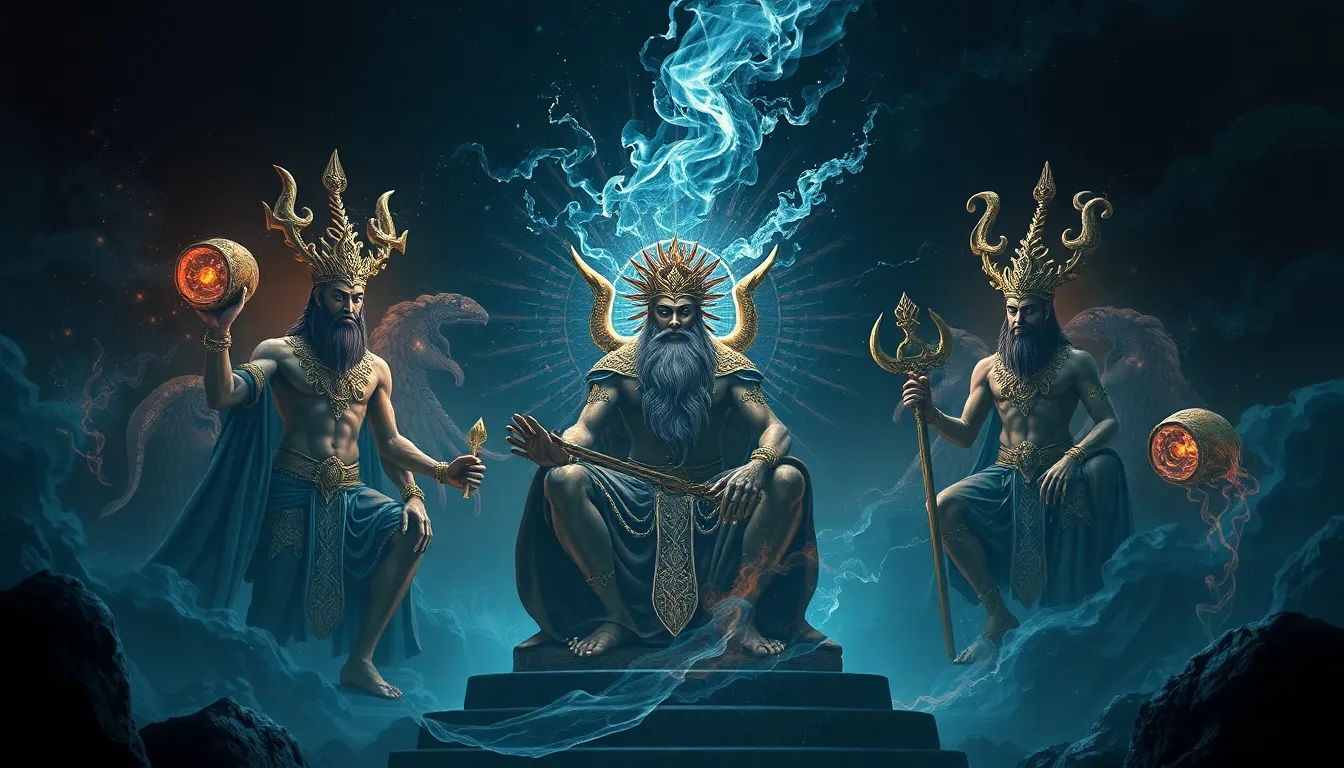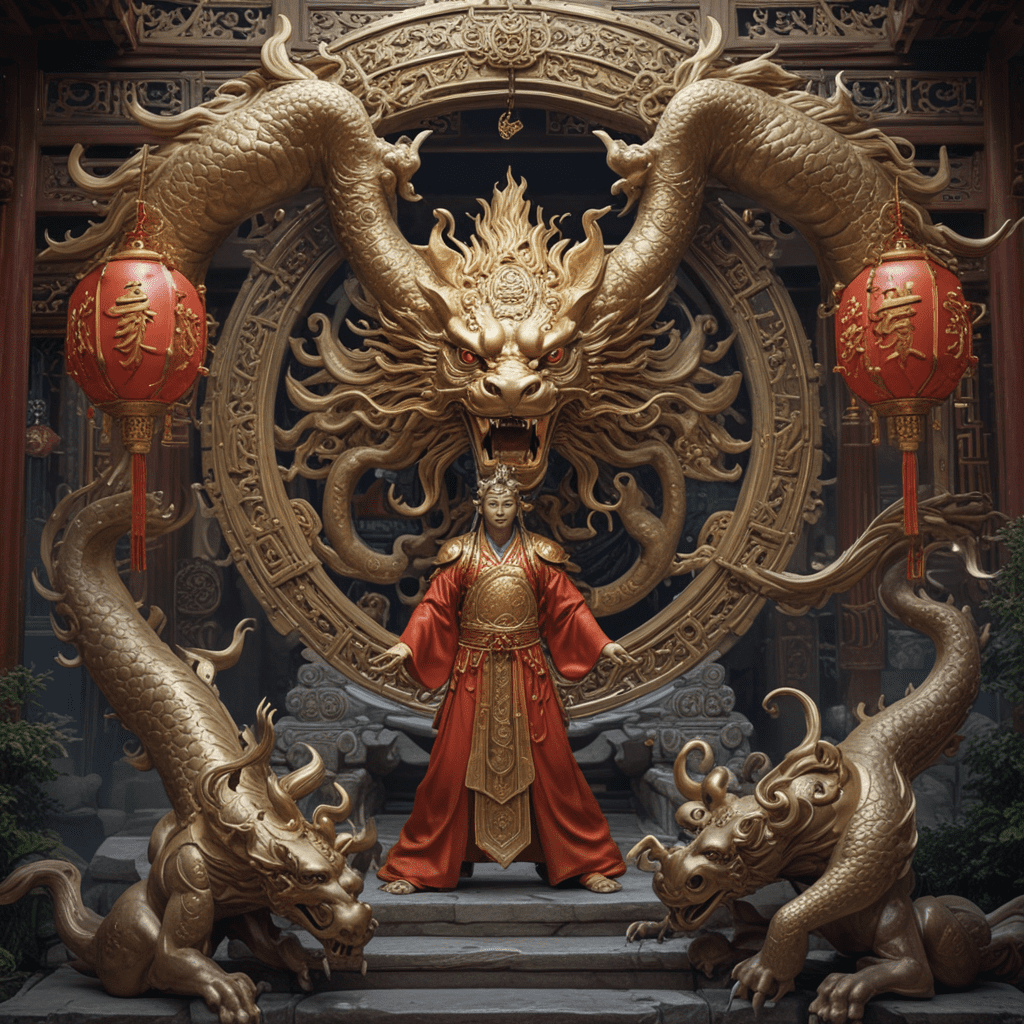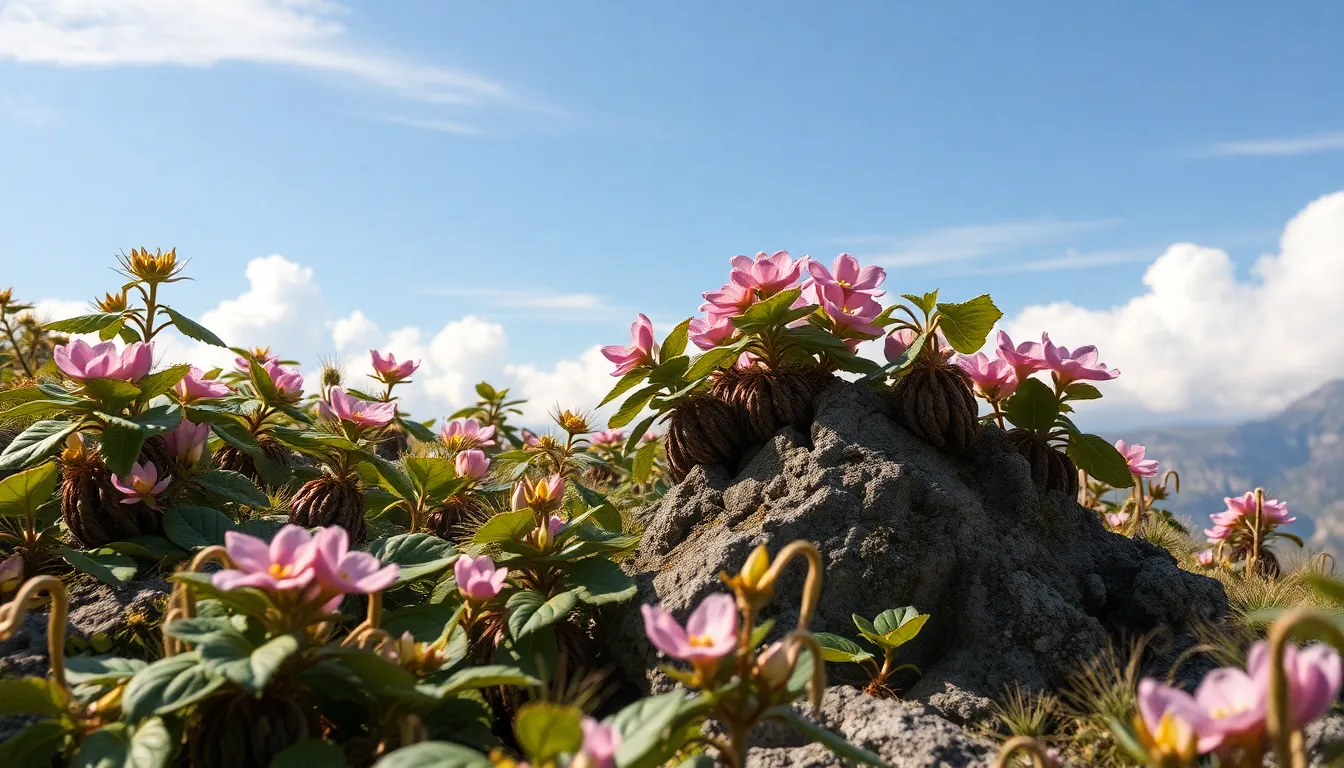The Cosmic Blueprint: Creation Myths That Define Existence
Introduction: The Search for Meaning
Throughout human history, creation myths have served as foundational narratives that seek to explain the origins of the universe, humanity, and existence itself. These myths are not merely ancient stories; they are profound reflections of the cultures that embrace them. They provide frameworks through which societies understand their place in the cosmos, shaping worldviews and influencing moral and ethical structures.
In a world rich with diversity, the exploration of creation myths reveals the shared quest for meaning that transcends cultural boundaries. By examining these narratives, we can gain insights into fundamental human questions about life, purpose, and the nature of reality.
Understanding Creation Myths: Definitions and Characteristics
Creation myths are traditional stories that describe how the world and humanity came into existence. They often encompass themes of chaos, order, creation, and destruction, and are characterized by certain common elements, including:
- Cosmic Origins: The narratives often begin with a primordial state, characterized by chaos or void.
- Divine Intervention: Many myths feature deities or cosmic forces that play a crucial role in the act of creation.
- Human Origins: Most myths include explanations of how humans were created and their purpose in the world.
Myths serve various functions in society, including:
- Providing explanations for natural phenomena.
- Offering moral guidance and cultural values.
- Fostering a sense of community and shared identity.
A Journey Through Time: Historical Context of Creation Myths
Creation myths have deep roots in ancient civilizations, often emerging in response to existential questions arising from human experiences. The earliest recorded myths can be traced back to civilizations such as the Sumerians, Egyptians, and Greeks. As societies evolved, so did their myths, reflecting cultural shifts, historical events, and the interplay between tradition and innovation.
For instance, the Babylonian “Enuma Elish,” created around the 18th century BCE, reflects the political and social structures of its time, while the biblical “Genesis” infuses Hebrew monotheism into its creation narrative, highlighting the significance of a singular divine creator.
Comparative Analysis: Creation Myths Across Cultures
Examining various creation myths reveals both unique and universal themes. Here are some notable examples:
- Genesis (Judeo-Christian): Describes a six-day creation process culminating in the creation of humanity in the image of God.
- Enuma Elish (Babylonian): Chronicles the battle between gods, resulting in the creation of the world from the body of the defeated goddess Tiamat.
- Popol Vuh (Mayan): Tells the story of the creation of humanity through the gods’ trials and tribulations, emphasizing the importance of maize.
While Genesis emphasizes a linear creation process, the Enuma Elish highlights chaos and conflict, and the Popol Vuh intertwines nature and creation, illustrating how cultural contexts shape these narratives.
The Role of Deities and Cosmic Forces in Creation
In many creation myths, deities and cosmic forces are central figures that embody the values, beliefs, and aspirations of their respective cultures. These divine beings often represent:
- Order and Chaos: Many myths depict gods who bring order to chaos, symbolizing the struggle between stability and disorder.
- Human Qualities: Deities often exemplify human traits, such as love, wrath, and wisdom, making them relatable to human experiences.
- Natural Elements: Gods may be linked to elements of nature, reflecting the culture’s relationship with the environment.
The portrayal of these entities reveals much about societal values and the human condition, emphasizing the interconnectedness of the divine and the mundane.
Symbolism and Archetypes: Unpacking the Cosmic Blueprint
Recurring symbols and archetypes play a significant role in creation myths, contributing to a deeper understanding of existence and human nature. Common symbols include:
- The Tree of Life: Symbolizes growth, interconnectedness, and the cycle of life.
- The Serpent: Often represents duality, temptation, and knowledge.
- Water: Frequently symbolizes chaos, life, and purification.
These symbols resonate across cultures, offering insights into the human experience, our relationship with the universe, and the intrinsic quest for meaning in life.
Myth and Science: Bridging the Gap in Understanding Creation
The relationship between scientific theories and creation myths has been a topic of much discussion. While scientific explanations such as the Big Bang theory and evolution provide empirical accounts of existence, they do not necessarily negate the value of myths. Instead, myths often complement scientific narratives by addressing existential questions that science may overlook.
For instance, while science can explain how life evolved, creation myths provide a framework for understanding why life exists and what it means to be human. This interplay between myth and science enriches the human experience, inviting deeper reflection on our origins and purpose.
The Psychological Perspective: Creation Myths and the Human Psyche
From a psychological perspective, creation myths resonate with individuals on a deep level. Carl Jung’s theory of archetypes suggests that these narratives tap into collective unconscious, addressing universal themes and fears. Myths help individuals navigate existential dilemmas, providing comfort and context in times of uncertainty.
These stories can also shape personal identity, offering a sense of belonging and connection to something larger than oneself. They foster societal cohesion by uniting people around shared beliefs and values, reinforcing community bonds.
Modern Interpretations: Creation Myths in Contemporary Society
In contemporary society, creation myths are often reinterpreted in various forms of media, including literature, film, and art. Modern adaptations may explore existential themes through familiar narratives, making them relevant to today’s challenges. Examples include:
- Literature: Novels like “American Gods” by Neil Gaiman reinterpret ancient myths in modern contexts.
- Film: Movies like “The Matrix” explore themes of reality and existence, echoing mythological undercurrents.
- Art: Contemporary artists often draw upon mythological themes to comment on society and identity.
These reinterpretations highlight the enduring relevance of creation myths, demonstrating their capacity to address contemporary existential questions.
Conclusion: The Enduring Legacy of Creation Myths
Creation myths hold a significant place in human culture, offering profound insights into existence, identity, and morality. They not only reflect the values and beliefs of their societies but also address fundamental human questions that transcend time and culture. As we continue to seek meaning in an increasingly complex world, these narratives remain vital in shaping our understanding of existence and our place in the cosmos.
In a world filled with diverse perspectives, the exploration of creation myths reminds us of our shared humanity and the universal quest for understanding that unites us all.




